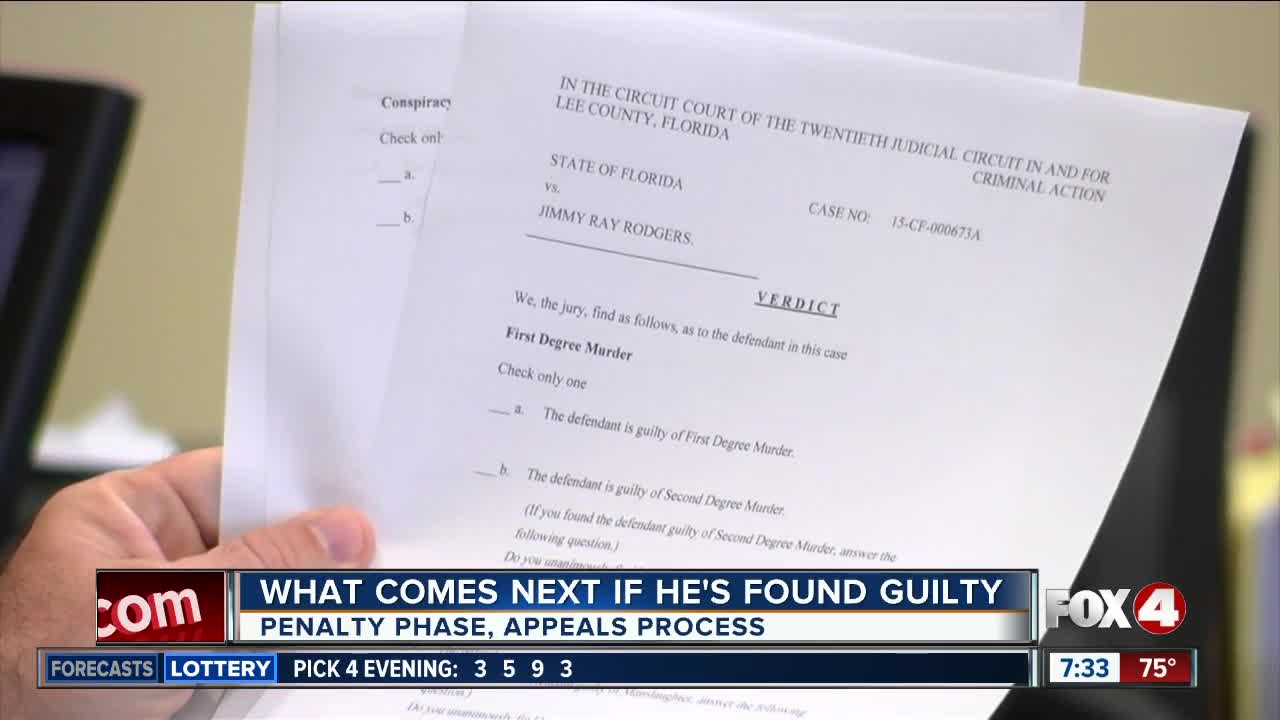FORT MYERS, Fla. -- The Jimmy Rodgers jury spent almost the entire day deliberating Tuesday. They left court at around 5:30 p.m., and were asked to report back to court at 8:30 Wednesday morning.
So we wanted to know: does the length of deliberation tell us anything?
"There are countless cases where a long deliberation resulted in either an acquittal or a guilty verdict. What it tells me, though, is the jury is making their best efforts to do a good job. They're analyzing the case and taking it seriously," says legal expert Pam Seay.
She says she does think the jury will draw the proper verdict here.
It's possible Jimmy Rodgers could walk away a free man if he's found not guilty. Like a guilty verdict, that would require a unanimous "not guilty" verdict from all 12 jurors.
If that happens, there's no re-do. That's because of double jeopardy -- it's part of your constitutional rights.
"You can't be tried for the same crime more than once. And nobody can touch him," says attorney Mike Chionopoulos.
The jury doesn't have to find Rodgers guilty or not guilty of First Degree Murder; he's also facing a charge of Conspiracy to Commit Murder, and a charge of Burglary.
They have to unanimously convict him on all three charges separately.
They also have options on the murder charge if they don't feel he's guilty of First Degree Murder. They can find him guilty of Second Degree Murder, or Manslaughter instead.
A Second Degree conviction could mean the jury found he was an accomplice to the murder.
Manslaughter would mean, in part, the killing was in the heat of the moment.
If he's found guilty of First Degree Murder, his attorneys will likely file an appeal.
We already saw the framework for an appeal laid during the trial, when his team motioned twice for a mistrial.
The first was when a lieutenant took the stand, saying Rodgers talked to them when they went to his home in Missouri, but refused to give a recorded statement. The defense said that violated his right to remain silent.
The judge denied that motion for a mistrial. But later that same day, the defense made another motion for a mistrial, when the same lieutenant talked about a conversation he had with Rodgers in a holding facility while he was on probation.
The attorney said Rodgers would not get a fair trial because the media reported he was on probation.
The defense claimed this would lead to prejudice in this case, but the judge reminded Rodgers’ attorneys that this information was already reported, and jury members were told to not watch the news or read about the case online. He then denied the motion.
Chionopoulos said these topics will likely be the focus of appeals if Rodgers is found guilty.
He also explained more about the appeals process. "When you win on appeal, you don't actually win your case. You win the right to come back and try it again in front of the same judge," says Chionoloulos. "Is there a limit to how many appeals? There's not. There's a limit to the types of issues, but not the number of issues."



